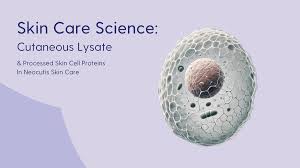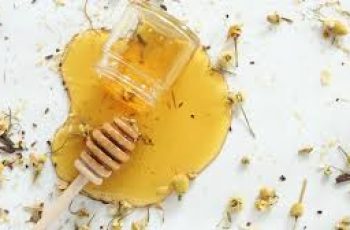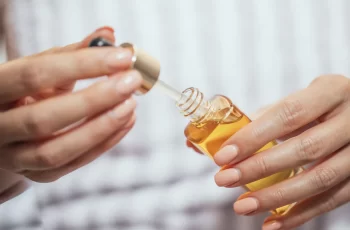
Cutaneous lysate and Processed Skin Cell Proteins in Neocutis Skin Care
Processed Skin Cell Proteins (PSPs), also known as cutaneous lysate, changed the anti-aging skincare industry, offering science-based skin rejuvenation benefits. As the cornerstone of the luxury growth factor skincare brand Neocutis, PSPs harness the regenerative power of human fibroblasts to restore collagen, enhance skin hydration, and promote a youthful complexion. Neocutis products, enriched with these potent bioactive molecules derived from fibroblast lysates, deliver antiaging skin benefits. Along with SkinMedica TNS, the Neocutis PSP containing growth factor products have added a new category of products to the antiaging skincare armamentarium.
Are these PSP containing products good for your skin? Take our dermatologist-developed skin type quiz to find out which of the 16 skin types you are and if you should use products with cutaneous lysate in them.
Neocutis’ anti-aging products use cutaneous lysate derived from cultured human fibroblasts
Cutaneous lysate is rich in essential growth factors and cytokines.
PSPs are gentle on the skin and good for sensitive skin types
Know your Baumann Skin Type before you buy any anti-aging products
Growth Factors from Cutaneous Lysate
This blog focuses on the cutaneous lysate found in Neocutis products. Technically a cutaneous lysate can be any substance that is extracted from cells. But this appears on the label of Neocutis antiaging serums and this company extracts the proteins from fibroblasts so this blog is based on that technology.
What are PSPs ?
Processed Skin Cell Proteins (PSPs), known as cutaneous lysate, are a unique blend of growth factors and cytokines derived from cultured human fibroblasts. The original cell cultures were made by taking a human skin biopsy and cultivating it in a laboratory environment. This resulted in the proliferation of fibroblasts, which are then processed to extract the valuable proteins they produce. These proteins are crucial for skin regeneration and repair, mimicking the natural biological processes involved in wound healing and skin rejuvenation.
There is a rumor that the skin biopsy used for cultivating these fibroblasts came from the foreskin of the CEO’s child, but this claim remains unverified. Regardless of the biopsy’s origin, the scientific process ensures the fibroblasts proliferate and produce the essential proteins that form the basis of PSPs.
On skin care product labels, these fibroblast derived growth factors are called “cutaneous lysate.”
Growth Factors are in Neocutis Products
Based on the detailed examination of the patent US9278122B2, the growth factors and cytokines present in the cutaneous lysate (PSPs) used in Neocutis products are as follows:
Transforming Growth Factor-beta (TGF-β)
Fibroblast Growth Factor (FGF)
Platelet-Derived Growth Factor (PDGF)
Vascular Endothelial Growth Factor (VEGF)
Interleukin-6 (IL-6)
Interleukin-8 (IL-8)
Interleukin-10 (IL-10)
Keratinocyte Growth Factor-1 and -2 (KGF-1, KGF-2)
Benefits
The primary benefit of PSPs lies in their ability to harness the natural regenerative properties of growth factors and cytokines. These bioactive molecules play a pivotal role in skin health by promoting collagen synthesis, enhancing the production of hyaluronic acid, and stimulating the formation of glycosaminoglycans. Here’s a deeper look into these benefits:
Collagen Restoration : Collagen is a critical protein that maintains the skin’s structural integrity and firmness. PSPs help restore collagen levels in the skin, which naturally deplete with age, leading to firmer and more youthful-looking skin.
Hyaluronic Acid Production : Hyaluronic acid is essential for skin hydration. It attracts and retains moisture, providing a plump and hydrated appearance. PSPs stimulate the skin to produce more hyaluronic acid, combating dryness and promoting a smoother texture.
Glycosaminoglycan Formation : These molecules, including hyaluronic acid, are vital for maintaining skin elasticity and hydration. PSPs encourage their production, contributing to overall skin health and resilience.
The combination of these effects leads to the reduction of fine lines and wrinkles, improvement in skin texture, and an overall rejuvenated appearance.
Side Effects and Safety
PSPs are generally considered safe with no known significant side effects. Here are some key points regarding their safety:
No Known Side Effects : Clinical studies and user reports have not indicated any major side effects associated with PSPs. Users typically tolerate these products well, experiencing minimal to no irritation.
Concerns About Growth Factors : There have been concerns regarding the potential for growth factors to stimulate the growth of skin cancers. However, no cases of skin cancer have been reported in association with PSP use over more than eight years on the market. The data suggests that PSPs are safe for long-term use.
The Environmental Working Group (EWG) has evaluated ‘cutaneous lysate” and provided favorable safety scores, indicating a low risk for adverse effects. The EWG score for products containing PSPs is generally a 1. However, there are many types of cutaneous lysate so it is not technically correct to give the same safety rated to all types.
Research Studies on Neocutis’ Cutaneous Lysate
Several research studies have explored the efficacy of PSPs in skin rejuvenation. Here are some notable studies and their findings:
Initial Case Report: A case report by Baumann et al. (2007) described the effects of Bio-restorative Skin Cream, a PSP product, on two participants with severe phototoxicity following 5-aminolevulinic acid (5-ALA) photodynamic therapy. The application of the cream twice daily for 3 to 7 days helped restore the skin to its normal condition, indicating PSPs’ potential in healing and repair (Journal of Drugs in Dermatology).
Randomized, Double-Blind, Split-Face Study: A study by Gold et al. (2007) involved 20 women with facial wrinkling in the lateral canthal area. Participants applied Bio-restorative Skin Cream or a placebo cream twice daily for two months. The results showed significant improvement in skin roughness parameters with the PSP cream compared to the placebo. However, the clinical assessment of wrinkles did not show a significant difference between the two sides. Another publication based on this study found that periorbital and perioral wrinkles improved significantly at day 30 and day 60 (Journal of Cosmetic and Laser Therapy).
Prospective Study on Fine Wrinkles: In a single-center prospective study, Fitzpatrick et al. (2009) evaluated the effects of Bio-restorative Skin Cream on 12 women over six months. Results indicated a 33% reduction in periorbital wrinkles and a 25% reduction in perioral wrinkles. Participants also reported improvements in facial lines, skin texture, and hydration (Journal of Drugs in Dermatology).
Lumiere® Bio-restorative Eye Cream Study: A multicenter, open-label prospective study by Fitzpatrick et al. (2009) on 40 women examined the effects of Lumiere® Bio-restorative Eye Cream. After six weeks of twice-daily application, significant improvements were observed in skin texture, sagging, dark circles, and periorbital wrinkles. Participants also reported enhanced skin quality and appearance (Journal of Drugs in Dermatology).
These studies collectively support the efficacy of PSPs in improving various signs of skin aging, including fine lines, wrinkles, texture, and hydration.
Conclusion
Processed Skin Cell Proteins (PSPs) in Neocutis products represent a cutting-edge approach to skin rejuvenation. Derived from cultured human fibroblasts, PSPs harness the power of growth factors and cytokines to restore collagen, promote hyaluronic acid production, and enhance skin health. With a strong safety profile and supported by numerous research studies, PSPs offer a promising solution for those seeking to combat the signs of aging and achieve healthier, more youthful skin.


